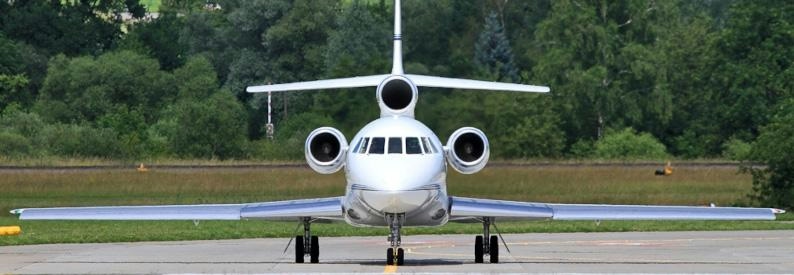AeroGenie — Tu copiloto inteligente.
Tendencias
Categories
Concerns Raised Over Ghana's Grounded Presidential Jet

Concerns Raised Over Ghana's Grounded Presidential Jet
Ghana’s presidential jet, a Falcon 900EX EASy (9G-EXE), has been grounded at Paris Le Bourget Airport since March 11, sparking parliamentary debate over its reliability and the future of the country’s official air transport. The prolonged absence of the aircraft has disrupted official travel arrangements, compelling Vice President Jane Naana Opoku-Agyemang to charter a private plane for urgent engagements in May. Beyond logistical challenges, the situation has raised broader concerns regarding the maintenance of high-profile government assets and their implications for Ghana’s international standing.
Maintenance Challenges and Parliamentary Oversight
During a recent parliamentary session, Defence Minister Edward Omane Boamah provided an update on the jet’s status, explaining that it is undergoing an extensive 24-month or 1,600 flight hour inspection and maintenance at Dassault Falcon Service in Paris. The maintenance process has involved replacing damaged engine components and addressing fuel tank contamination, problems attributed to previously deferred upkeep. Although the jet was initially expected to return by March 26, delays in obtaining critical spare parts have pushed the timeline back repeatedly. The minister now anticipates the aircraft’s return to Accra by July 31.
A detailed status report submitted to parliament and reviewed by The Herald newspaper revealed several critical defects. These include severe corrosion in all three wing fuel tanks, damage to the air intake plug and turbofan of engine No. 2 requiring full replacement, and intermittent faults in the starter-generator. The report also highlighted several previously deferred issues necessitating manufacturer-level repairs. It warned that untreated fuel tank contamination could lead to engine failure mid-flight, underscoring the seriousness of the maintenance challenges facing the presidential jet.
Diplomatic and Industry Implications
The grounding of Ghana’s presidential jet has attracted attention beyond national borders. Diplomats and international observers have expressed concern that disruptions to official travel could strain diplomatic relations, particularly if the reliability of the aircraft is called into question. The episode has also drawn scrutiny to aviation safety protocols, with market analysts closely examining both Dassault, the manufacturer, and its service providers. In response, competitors in the business jet sector have sought to emphasize their own safety and operational standards, aiming to reassure clients and distinguish themselves amid heightened industry scrutiny.
According to ch-aviation data, the 14.8-year-old Falcon 900EX EASy was delivered to the Ghana Air Force in September 2010 and is powered by Honeywell Aerospace TFE731-60-1C engines. As the government considers options for a long-term replacement, the ongoing maintenance saga highlights the complexities involved in managing state assets and the potential diplomatic and reputational risks when such assets are sidelined.

Emirates Unveils Cabin Design for New Boeing 777X

Eighteen Years On, the Airbus A380 Remains Central to a $34 Billion Airline

How a boom in luxury airline seats is slowing down jet deliveries

Navitaire Outage Attributed to Planned Maintenance

DigiYatra Debuts Outside Aviation at India AI Impact Summit

Vietnam Orders Strengthen Boeing’s Commercial Outlook

Airbus Signals Uncertainty Over Future A400M Orders

JobsOhio Awards $2 Million Grant to Hartzell Propeller for Innovation Center

Collins Aerospace Tests Sidekick Autonomy Software on YFQ-42A for U.S. Air Force CCA Program

How the Airbus A350-1000 Compares to the Boeing 777
